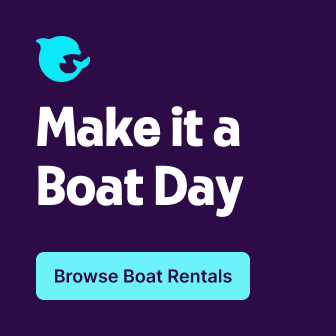Boating is a fun activity and most boaters enjoy sharing their experiences on the water. While the experience is often enhanced by having friends on board, it is important that your guests are given a few safety tips to ensure they have an enjoyable trip. You are the skipper of your boat and as such you are in charge of the vessel and responsible for it as well as everyone who is on board. The obligation is yours to explain the essentials.
You will find that there are different levels of information that you need to impart to your guests. If you have regular guests, or guests who are keen to learn, you can provide them with more information than just the basics.
It is important to do this in a friendly manner and be ready and willing to answer any questions they may have.
First, let us review the basic information that you should convey to all guests.
- The first thing to tell them is that you are the skipper, you are responsible, and in an emergency, you will be advising them what to do. Guests need to understand that while underway you may be giving them instructions for their own safety.
- You need to tell them where you will be going, the approximate timeline, and what you may encounter on the journey.
- Your third instruction should be how to move about on the boat. Remember the rule that they should have two feet and at least one hand available in contact with the boat at all times. If you are in a smaller boat, they need to be advised to stay low and to the center. Advise them to be especially mindful in any areas that get wet and slippery.
- Guests should be reminded that arms and legs need to remain inside the boat at all times. Advise them that flotsam in the water could cause serious injuries while underway and that body parts do not make good fenders.
- Show your guests where the personal floatation devices are located and how to wear them. Encourage guests to wear their PFD, especially on decks or in open boats. With small children or non-swimmers, this is a must.
- Ensure that someone knows how to stop the boat if something happens to you. Hopefully, you will have a regular guest on board who is aware of this and can captain the boat in an emergency. If there is time and interest, you might also explain the procedure for starting the boat, including the blower, and getting the boat underway.
Once this essential information is explained, there are other items that should be shared.
- Tell your guests how to operate the head, if there is one on board.
- Warn them to be careful while using utensils and other items, and that those should be secured when not in use.
- The location and proper use of fire extinguishers can be reviewed.
- Show your guests the location of your first-aid kit.
- If you are undertaking any on-the-water activities such as waterskiing or wake-boarding, take some time to explain the required procedures and signals.
Long-term guests, or those who will be with you over the course of many trips, may also be interested in learning more information about boating activities. For these guests, you should prepare a short series of instructions for the following activities.
- They can become part of your man-overboard procedure and may enjoy participating in drills.
- Advise them about abandon-ship procedures and shown where the emergency kit is located.
- Guests might be interested in learning how to operate a marine radio in emergency situations.
- Flares and other signaling devices that are on board can be shown to guests as well as the instructions about how to use them.
- Finally, many guests will be interested in helping with undocking and docking the boat. Proper procedures and knots should be shown to these guests.
As well as giving information to your guests, there is information you should gather from them, primarily concerning their own health and their ability to be safe on board.
- As the skipper, you will need to know if your guests have any medical conditions and if they are currently taking any medications. Do they have these medications with them?
- Find out if your guests have any physical limitations that could limit their activities and abilities on board.
- Finally, make certain those on board tell you at the first sign of seasickness. If your guest gets seasick, you can read these tips for seasickness to better prepare yourself to help him or her.
From casual observers to active participants, your guests require instructions and you must be aware of their physical condition. It is up to you to ensure they have the knowledge they require to be safe on board your boat so that everyone can boat happy.



















